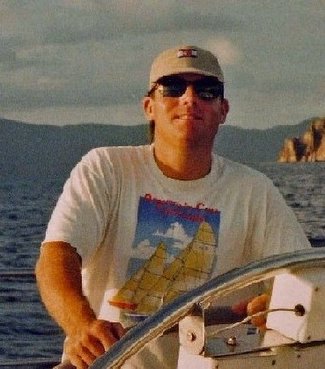A Digression
They say that you are all alone in this world, truly. That before you die images of your life blink past your eyes until there is nothing. Or there is God. Or there is whatever you believe in.
They say that there is someone for everyone. Never go to bed angry. You reap what you sow. We only have one life to live. Rainy days are good for love. There is safety in numbers.
No word on how to learn to smile again. Or how to throw out her toothbrush. What cliché instructs on how not to wake trembling in a cold sweat at 3:00 AM with the sheets in a pile on the floor? Or how to stop at one drink? Nothing about chasing the dog’s ball under the bed and there is her slipper, nested with dust alongside a wadded up ball of tissue paper. He lay for a long time staring and breathing in dust and coughing until his eyes ran. Left the ball and took the slipper. The dog seemed to understand.
They did say that life is for the living. But Keane wondered if that was always so.
Their garden overlooked the Pacific Ocean, a tangled mass of vines and blooms choking and spilling over the cliff, the steady sound of waves breaking on the rocks below. In the center was three hundred square feet of well-trimmed lawn with two weathered Adirondack chairs facing the water. He favored the Alexander Girault ramblers, dark pink ruffled blossoms and a white center. Blush Noisette’s grew unchecked along the border and over the fences, their dusky scent mixing companionably with the ocean air. Shrub-like Rambling Rector’s with semi-double blooms, the apricot and copper blossoms of the Leontine Grevais, the climbing Lemarques wafted tea-lemon when warmed, large, pale clusters of yellow Emily Gray’s, robust La Perle’s, sun-faded Gardenia roses. A few bushes had come with the house but Aimee planted most when they’d first moved in and he kept them up now, not orderly but well tended. She’d carefully taught him their names and peculiarities and how they liked to be cared for.
When the fog came in they often sat for hours in the Adirondack chairs. They liked it when the vast ocean panorama was reduced to the small, windswept rose garden, blossoms flashing and disappearing as mist spun through the bushes like cotton candy. The rhythmic moan of a foghorn.
He was standing along the slatted wooden fence that separated the garden from the cliff and trimming the Alexander Girault when the sprinklers came on with a whir and began the steady whap tack whap tack, spurting water across the garden. He stood as a jet stitched across his chest. It was windy and bright and as the stream swept off the garden to the ocean, the breeze blew back a mist that sparkled in the sun. Moving to avoid the next jet, he tripped over the dog. As he fell he threw his hands up and the right one met the grass first. The weight of his body followed and his left arm hit the rake solidly, driving two of the five spikes deep into his forearm. He yelped and grabbing the handle with his free right hand, wrenched his arm from the rake and swung to his feet almost in one, continuous motion. Without thinking he aimed a kick at the dog’s head and missed, caught him square in the hip. The dog sang out, one hard bark and scrambled away and he lost his footing again and fell, blood from his arm laying a perfect crimson trail across a bed of white Penelope roses.
The sprinkler sent a stream tapping across his face and despite the pain it was good, refreshing and down low on the grass the wind wasn’t blowing but he still felt the heat of the sun. The earth smelled of moisture and rich soil and something flat that must have been the fertilizer. For a moment he felt nothing then his arm began to throb. Stripping off his t-shirt, he wrapped it around the wounds and sat up. He was dizzy from the way it had happened so fast. The ache from his arm shot up through his chest and made him feel a little queasy in his stomach. He used his good arm to pull himself up on his feet and kicking the rake aside, began to walk towards the house to wash and dress the wounds. The sprinkler marched steadily across his bare back and just as he elbowed open the gate he heard far off barking trailing to a whimper.
The dog had gone through the gate that faced the ocean. The gate opened to a narrow strip of land that formed the cliff and gave way to a steep slope that ended in rocks and ocean below. There was no sign of the dog. He heard him barking again and then the roar of a wave sweeping in against the rocks.
“Ah hell,” he said, and walked back across the lawn through the sprinkler and peered over the cliff. The dog had gone over, sure enough. Keane could see him down on the ledge, maybe 60 feet below, body pressed against the rock slope in anticipation of another wave. He appeared unharmed though his situation was precarious.



3 comments:
Great word picture. I just might have to report you to some literary people I know.
Here's a place you might consider submitting your work:
http://www.pikerpress.com/index.cfm
It's not a paying market, but it's a legitimate literary publication, and I think this piece would fit in there.
It was very nice of you to say so and I certainly will consider submitting to the Piker. Thank you!!!
Post a Comment